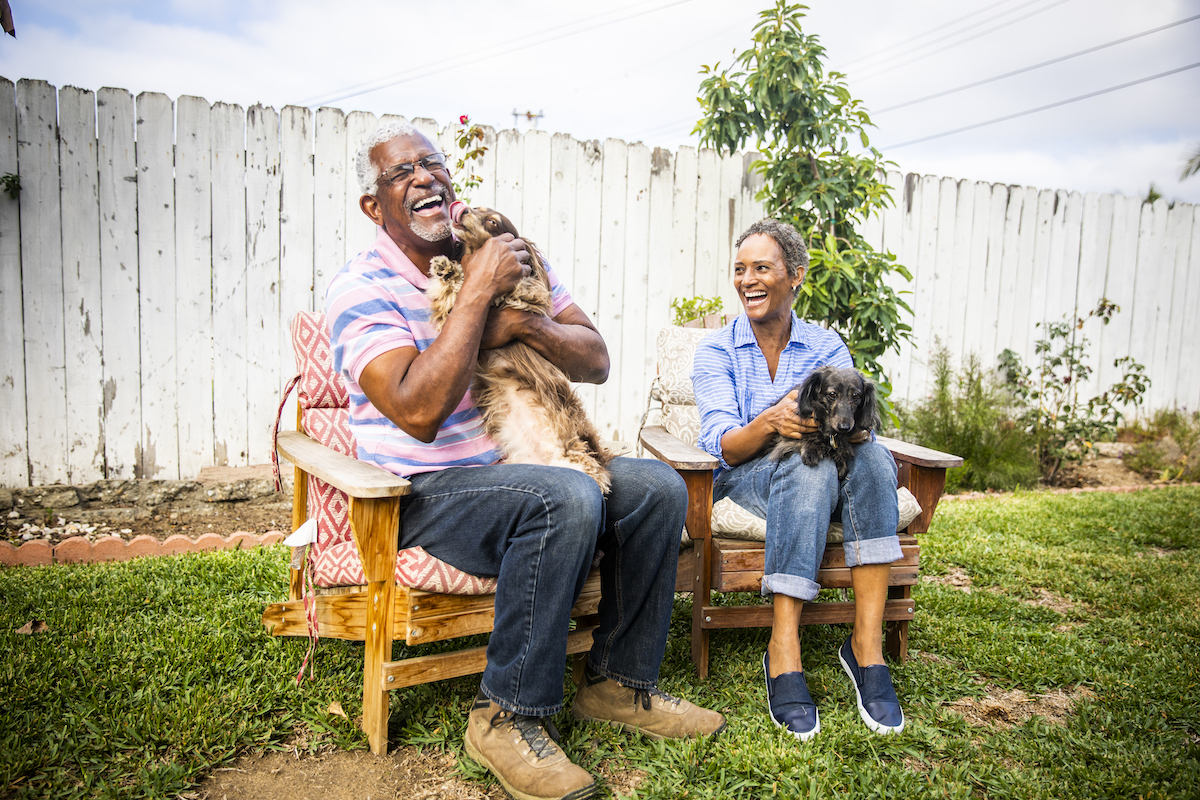5 Good Ways to Help an Ailing Friend
Looking for ways to support someone with a serious illness? Try these tips to help you help them.

For many people, friends and neighbors are like family. And when one of them is sick or gets a scary diagnosis, you feel an urgency to do something—and then have no idea what that should be.
What’s truly helpful? Would they rather have space to process? How long should I wait before checking in?
These are all common questions, and the answers may depend on the person, says Theresa A. Harvath, Ph.D., R.N. She’s senior director of strategic initiatives at the Family Caregiving Institute at the Betty Irene Moore School of Nursing at the University of California, Davis. “The way in which we want others to help us when we’re sick can be very different from one person to the next.”
Her suggestion: Before you take action, ask your friend whether they want help and what kind. Especially in the early days after a diagnosis, people may not know what they need or may find it hard to accept help, adds Christina Irving, L.C.S.W., client services director of the Family Caregiver Alliance.
Don’t ask once and then disappear, says Irving. It’s good to continue checking in. “It may take time. If you think somebody’s not willing to let you help, it just may be that they’re not ready yet,” she says.
When the time is right, make it easier for your friend to accept help by offering examples of things you’re willing and able to do—mow the lawn, do laundry, prepare meals to put in the freezer, vacuum, or pick up medication.
“Being very specific—rather than extending a blanket offer to ‘help with anything’—eliminates the burden some may feel in asking you for help,” Irving says.
Need ideas for what you can offer? Here are five truly helpful things caregiving experts suggest.
Get and stay fit with SilverSneakers! Choose from dozens of different Community classes, visit a participating fitness location, or view the current schedule of SilverSneakers LIVE online classes here.
-
Take Care of Furry Friends
A health crisis can make caring for pets difficult, forcing some people to give them up, says Irving. This not only means losing a companion, but research shows that pet ownership also can help control blood pressure and relieve stress—both are especially helpful when going through a tough time, adds Harvath.
A furry friend might help even more than human connections in easing tension. One study found that people’s blood pressure levels were lowest when they spent time with their pets, compared to being alone with their spouse, likely because they feel calmed by the animal’s presence.
Offer to regularly walk the dog or change the cat litter—without any expectations to stay and socialize. Anything that eases the burden of pet ownership will make it easier for your friend to keep their companion around.
-
Organize a Support Team—and Keep Them Informed
You’re probably not the only person offering to help or asking your friend how they’re doing. Sometimes all the inquiries can be overwhelming, and your friend may be too physically and emotionally exhausted to respond to everyone, Irving says.
This is when technology comes in handy. There are several websites and apps that help coordinate care across family members and friends. With your friend’s permission, you can start a page for selected friends and family to let them know what’s going on and what help is needed.
Three easy-to-navigate suggestions:
- Lotsa Helping Hands, an app that provides a simple way to organize tasks, including running errands and coordinating rides to appointments, via a shared calendar
- CaringBridge, a free online tool for sharing health updates with everyone in your circle—all at once
- Meal Train, an easy way to organize meal giving
If your friend would rather not use apps or websites, you can still offer to keep friends and family informed via email or write thank-you notes, Harvath says.
-
Research Resources That Meet Their Needs
Sometimes people need more assistance than what friends and family can provide. If that’s the case, offer to take the lead on researching care options that meet their needs.
“It’s hard to navigate through our country’s long-term care system,” Irving says. “Helping someone call the resources to find out about eligibility and services available can be invaluable.”
Your loved one’s health insurer or primary care provider is always a good place to start. They’ll have a good line on local home health resources and support services.
You can also check out the area agencies Eldercare Locator (eldercare.acl.gov). Simply type their ZIP code into the search box to see a list of local services and community organizations you can contact.
Subscribe to our newsletter
It's quick and easy. You could be one of the 13 million people who are eligible.
Already a member? Click to discover our 15,000+ participating locations.
Follow Us
Medicare’s home health comparison is another helpful tool that allows you to find and compare home health services across the country.
Note that you likely won’t have the authority to sign up someone for any of these resources, but doing the legwork—finding out what’s available, whether your friend is eligible, and what the next step would be—is a huge help.
-
Chauffeur to and From Appointments
Driving can present challenges for a few reasons: Certain conditions may make people too fatigued to drive, some medical procedures require a designated driver to take them home, or a medication may prevent someone from operating a vehicle. Whatever the reason, be proactive with an offer to provide transportation so that it’s never an added stressor.
Even better, volunteer to go to the appointment with them to take notes and provide support, says Harvath. It never hurts to have a second pair of eyes and ears when speaking with health care professionals, as long as your friend is comfortable with you there and you recognize that they may wish to keep the information confidential.
-
Volunteer a Regular Block of Time to Do Whatever Your Friend Needs
Needs can change quickly when someone is dealing with a serious illness. Going grocery shopping and picking up a prescription might’ve been helpful last week, but emotional support or someone to just sit and listen may really be what your friend needs now.
Consider volunteering a block of time—two hours every Monday afternoon, for example—to do whatever your friend needs for that day or week, Harvath suggests.
“You want to be clear about what you can do and not promise more than you can deliver,” she adds. So this option is best for people truly willing and able to do a wide variety of tasks while also being flexible when schedules need to change.
Take Your Favorite SilverSneakers Classes Online!
SilverSneakers members can access live fitness classes and wellness workshops through SilverSneakers LIVE. See the latest schedule and RSVP for classes here.
Not a member? If you have a Medicare Plan, it may include SilverSneakers—at no additional cost. Check your eligibility instantly here





